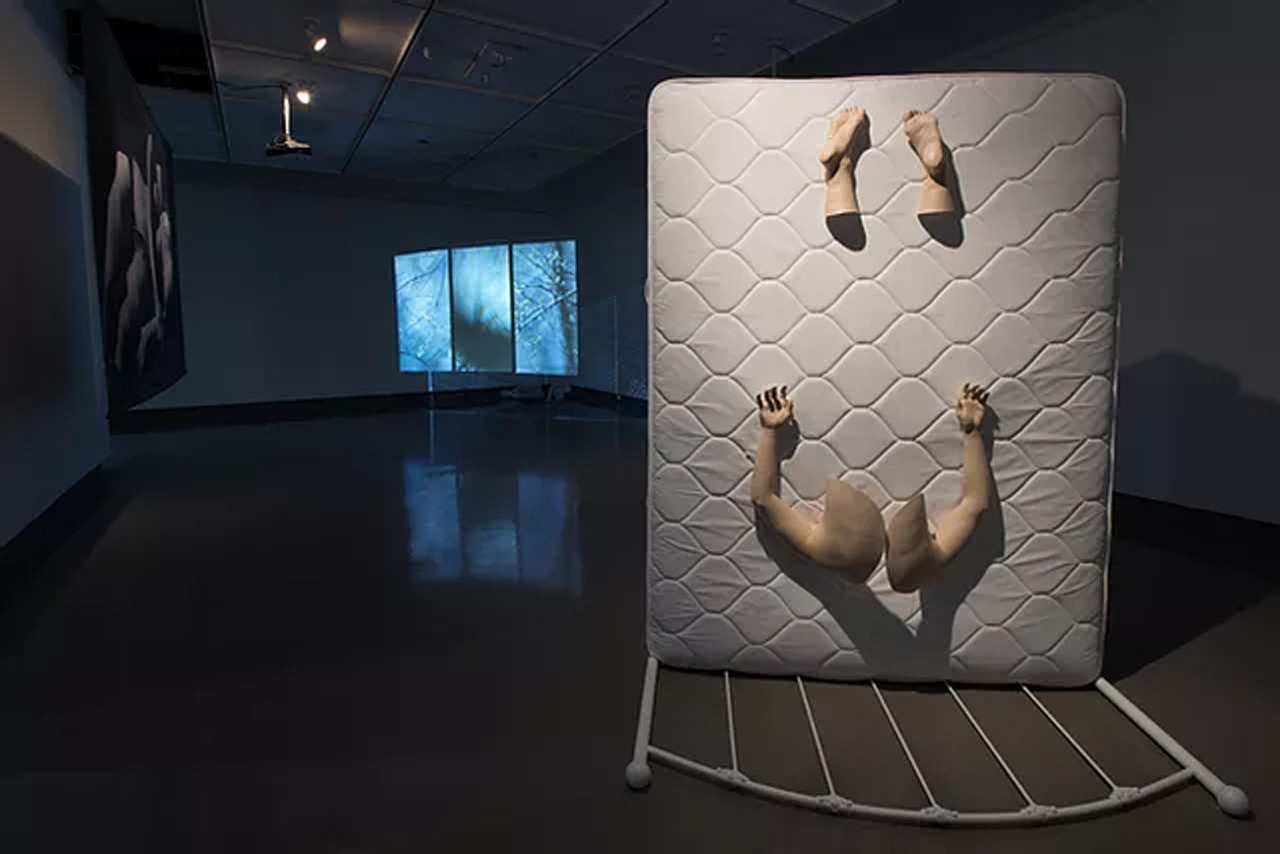The artist Hanna Newman uses her personal experience of sleep paralysis to express feelings through art. Her latest exhibition of sculptures, entitled Dawn, merges the physical with the psychological. She considers sleep paralysis to be a kind of mixed state of consciousness and draws parallels between her work and that of the surrealists (also often inspired by the theme of dreams).
Newman has been familiar with the horrors of sleep paralysis since childhood and “grew up doubting her grasp of reality at times.” Here is how she describes her first experience: she woke up in the night, paralyzed, and tried to mentally scream, to call for help to her sister, who was sleeping on a nearby bed, but found that she could not move her lips. A shadowy figure standing near the open door, took a step into the room, looked around, and then went out into the hallway. A minute later, Hanna opened her eyes.
Gradually, she got used to these episodes, but never felt comfortable with them. They made her wonder if her feelings were real, or if it was all a halucination generated by sleep or insomnia. And so, she began to create sculptures that existed, like herself, “in an in-between state of altered reality.”
Newman often integrates domestic objects into her work: pillows, sheets, blankets, beds, window blinds, etc. As she explains, “these objects suggest the intimacy of a private setting and blur the boundaries between interior and exterior spaces.” The artist casts the sculptures with the help of special rubber, using her own body. For her, “it carries great weight to know that these casts were created by direct physical contact with her body.”
Phase states, which, in addition to sleep paralysis, also include lucid dreams, out-of-body and near-death experiences, as well as false awakenings, often affect creativity. Dawn in this sense is an unusual example of the embodiment of inner experience in a concrete tangible physical world.
The work was submitted at Georgia State University for the degree of Masters of Fine Arts in May 2021.




